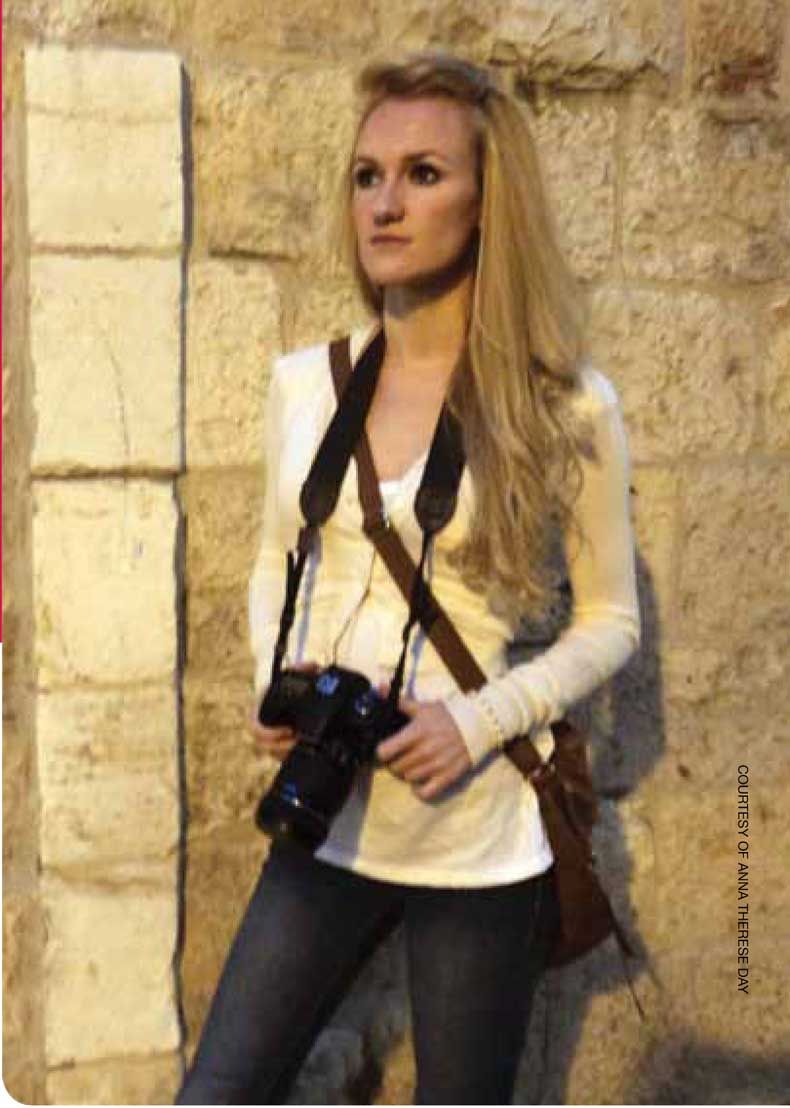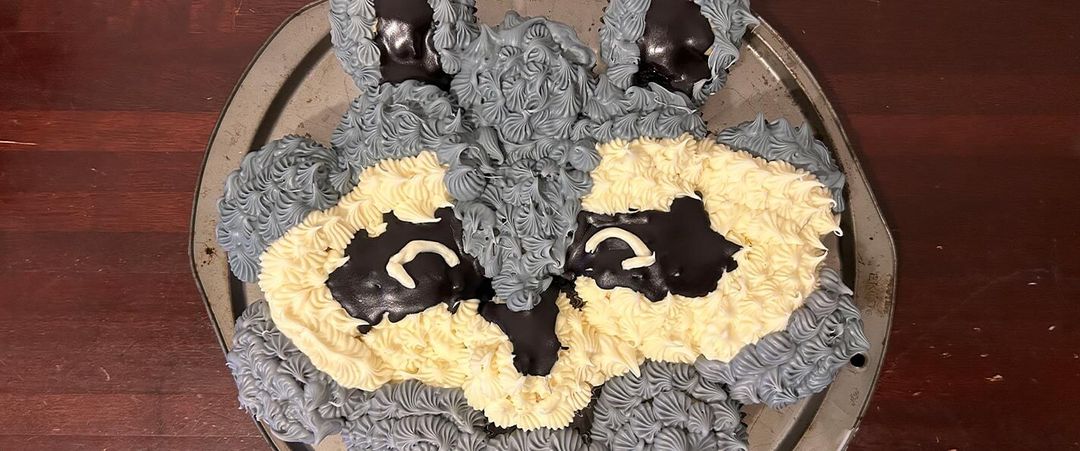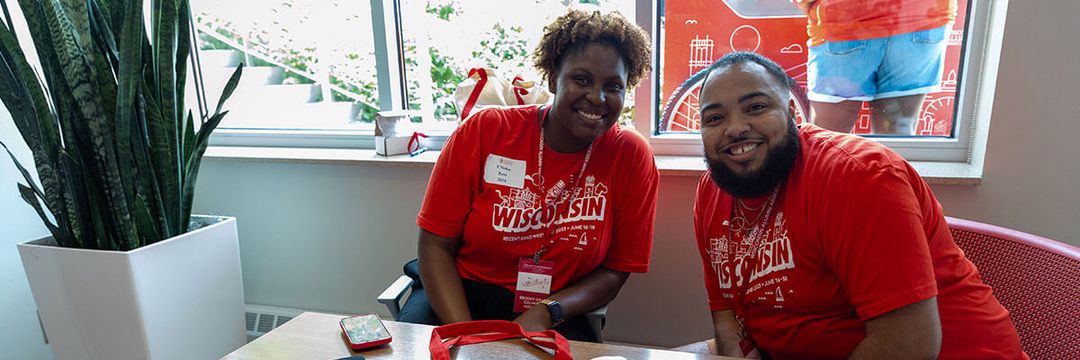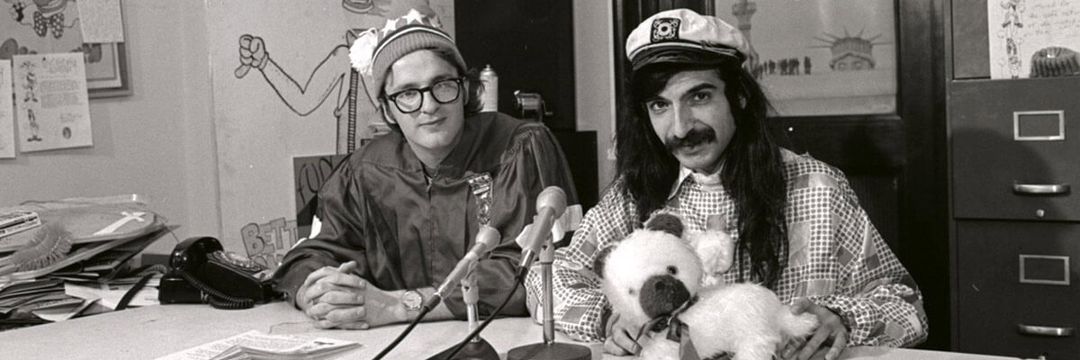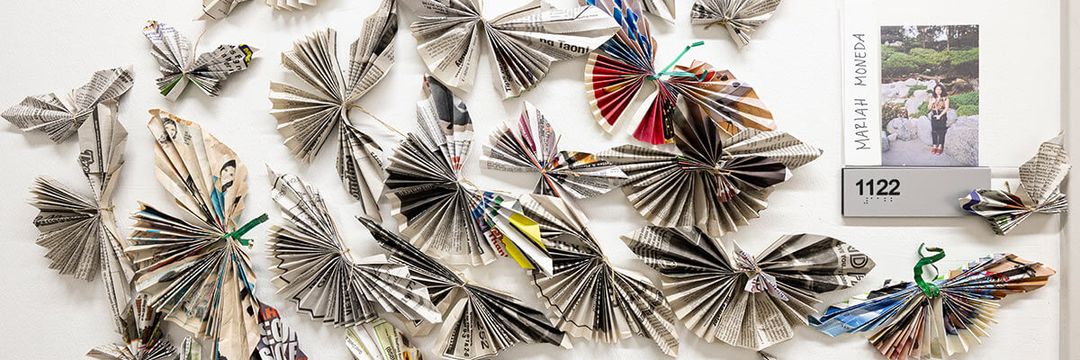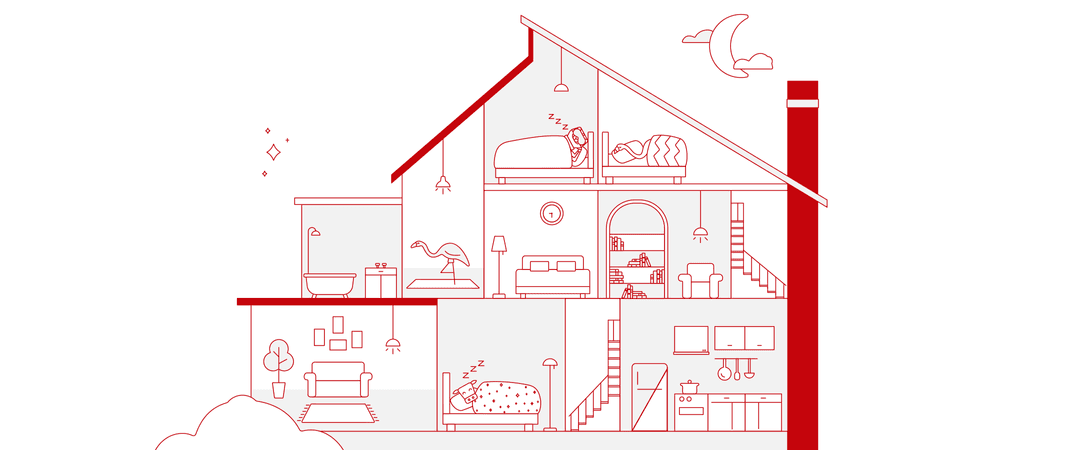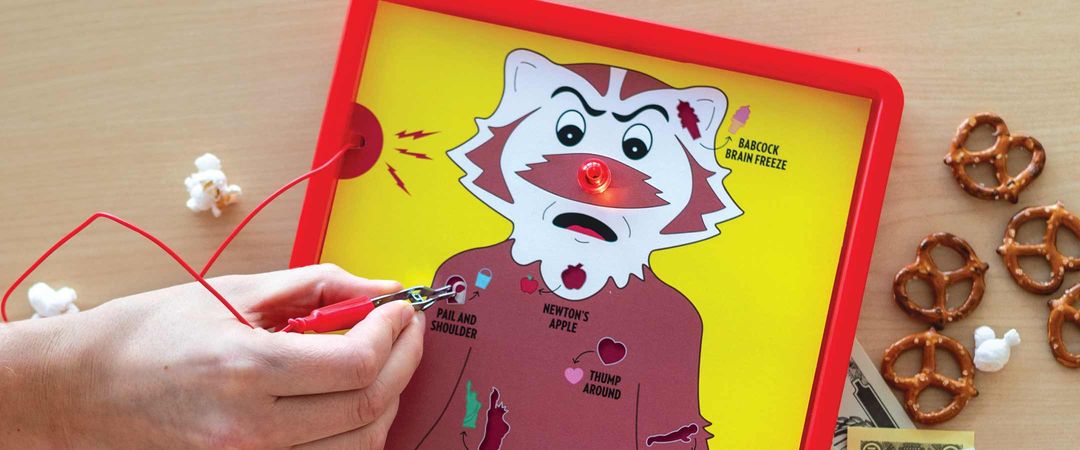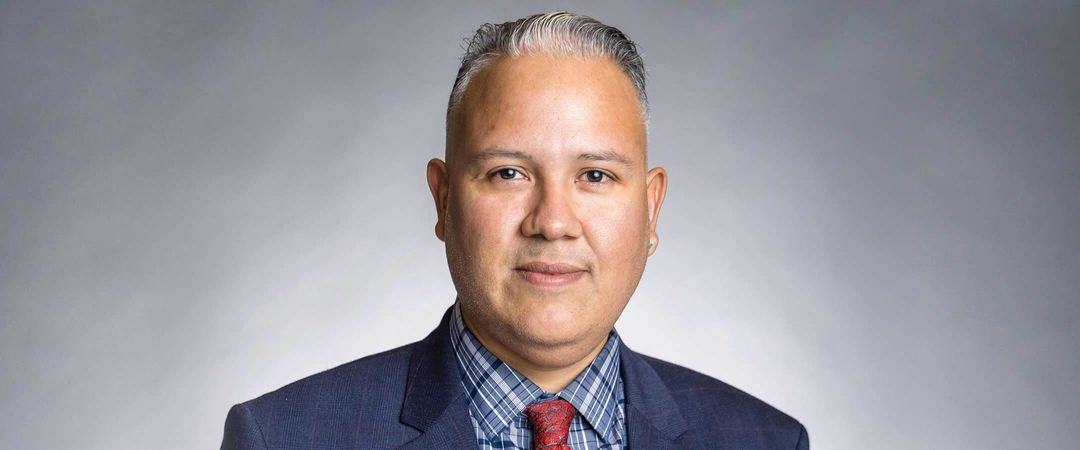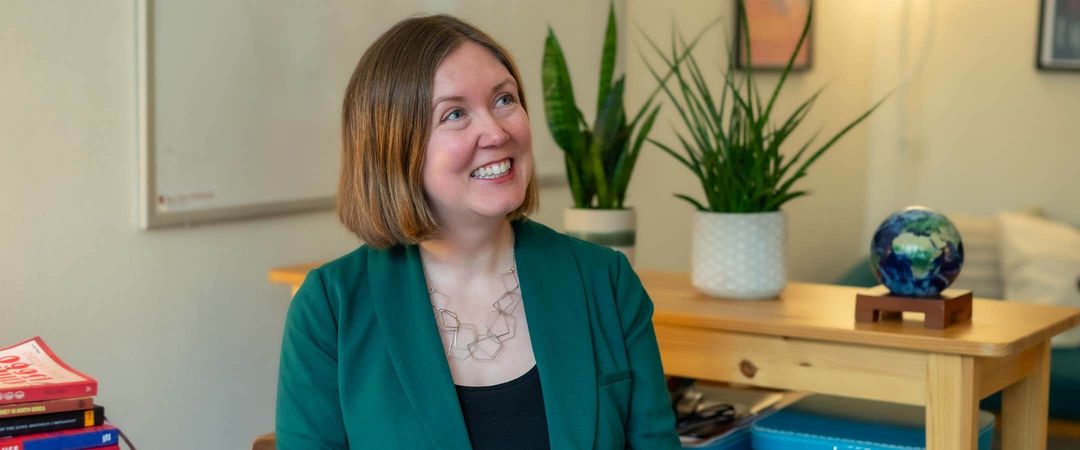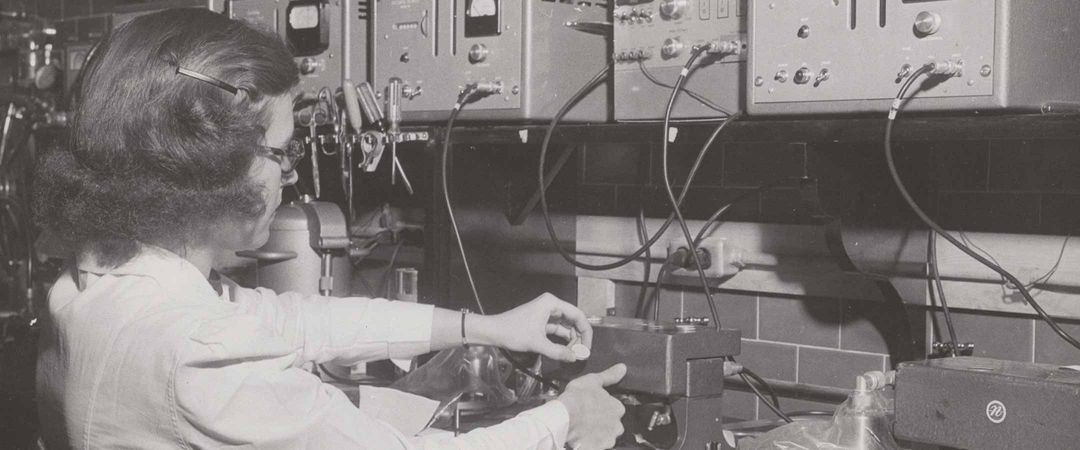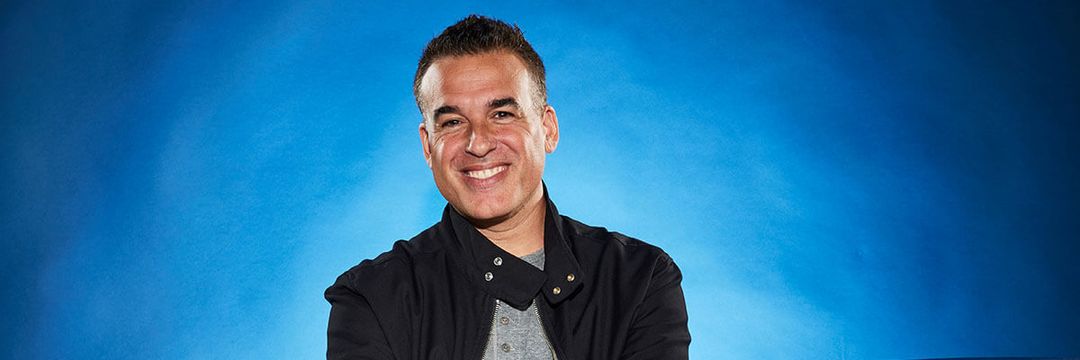10 questions with an alumna on the move
(expanded from the Spring 2012 edition of Badger Insider Magazine)
For Anna Therese Day ’10, there’s no such thing as a typical day at the office. Not when her “office” happens to be the streets of Cairo and the occupied Palestinian territories. As a freelance journalist and producer taking full advantage of social media, Day has been covering the democratic upheavals in the Arab world and the Israel/Palestine conflict since graduating from UW-Madison. Her work has been featured on CNN International, the BBC, NPR, and The Huffington Post.
How did you go from attending UW-Madison to covering the democratic upheavals of the Arab Spring in the Middle East?
As an undergrad at UW-Madison, several fantastic professors encouraged my early travel to, and work in, the Middle East. Torn between advocacy and journalism, I decided that whichever route I took, further experience on the ground would serve me well, and thus I moved back to the Middle East upon my graduation. Prior to this move, I lived in Arab countries and gained a background in the Israeli-Palestinian conflict, and I wanted to move to Israel proper to get a feel for the Israeli experience of conflict while simultaneously attempting to learn more about the non-violent resistance in Palestine, a sophisticated and resilient movement that began long before the Arab Spring. Following the Tunisian revolution, however, I began seriously considering the whispers of protest in the blogosphere in Cairo and finally decided to take a chance and fly down to Cairo on January 24 (the day before the Egyptian revolution) … and I haven’t looked back since!
How did your time at UW-Madison prepare you for your current experiences?
My experiences from UW-Madison undoubtedly play a major role in my work every day. From the problem-solving skills gained from navigating a large university, and professional contacts through Wisconsin professors and classmates, to the critical mind I developed through my liberal arts degree, UW-Madison has been an invaluable part of my career already.
You recently took part in an online debate on the topic of “Connecting the Dots: 9/11, U.S. Policy, and the Arab Spring” with former Secretary of State Condoleezza Rice. What was that like and what did you learn from it?
The debate was an incredible opportunity, and I admit my heart was racing when I first read “Dear Anna” in Dr. Rice’s piece. After reading her response, however, I quickly snapped back to reality — unfortunately to the disappointing but predictable dynamic between journalists and government officials, a dynamic in which politicians respond to irrefutable facts as if they are simply a journalist’s unfounded, personal opinion. The experience was personally exciting, and I’m pleased that I was able to poke holes in the delusions of any politician from the Bush administration, but it did little to shed light on America’s counterproductive and illegal policies in the Middle East that continue today. They were as numerous as they were horrifying, and continue to this day. Moreover, the debate served as a reminder of how unwilling our politicians are to take responsibility for their actions, even when their names are written all over it.
In your view, what has social media’s impact been on the Arab Spring movement?
Social media for social justice was the buzz-phrase of 2011 no doubt, but I’d say all the hype was well deserved. In closed societies, dissent can be easily dissipated, and dissidents effortlessly isolated. But the Internet forged a new channel of expression that has created an innovative space for organizing. In Egypt, for example, Internet saturation is small, with the number of those who use it for activism even smaller. As we saw, however, all it took was a critical mass to get the ball rolling in the most unpredictable event of the year. I can’t imagine what the future will look like as Internet access expands (so long as it remains decentralized).
What have your experiences been like as an American woman and a journalist in the Middle East?
It depends on which day you ask me. Some days I’m exhausted and emotionally overwhelmed from the violence, others I’m inspired and feel like the luckiest woman in the world to be in the thick of things in a region I care about deeply. I cover women’s issues generally; therefore, my gender often helps me to more easily gain access to women’s voices in conservative societies like many in the Arab world. The threats that I experience, however, are many, but interestingly they stem from the same patriarchal ideas palpable in the United States, heightened partially due to the instability of conflict zones, the weakness of legal systems here, and the exoticism of my looks as a young blonde Western woman in the Middle East. It’s been fascinating to see the parallels of patriarchy between such visibly different cultures.
How do you see the Arab Spring movement playing out?
While the legacy of these regimes will be present in many of these countries for decades, what has happened in 2011 has most importantly created a change in consensus — a shift that can be the most challenging task in garnering support for any political change in many countries. Moreover, that consensus is a demand for democracy, an unwillingness to live under dictatorships any longer. Will their democracies include Islamist parties? Yes. Will they include some right-wing parties that want to further blur the lines between religion and state? Yes. However, the bottom line is that, just as exclusion fosters radicalism, inclusion supports moderation. Allowing fringe parties to compete with the moderate majority could potentially be the best thing for a region whose international image has been that of their vast minority — the terrorist — instead of the majority who just want to live their lives with a government that responds to their interests as expressed in their revolutions.
Where do you see the Middle East both politically and socially in ten years?
Overall, I’m quite hopeful. These demonstrations are an expression of data that opinion polls, Middle East experts, and Arab voices themselves have been reiterating for over a decade — people want elections, freedom of speech, jobs. Though the challenges will be relentless, each country has its own set of potential strengths from which to build. Libya, for example, has a relatively small population and the greatest amount of oil wealth in the entire African continent. If a strong political apparatus can be established, Libya could become a regional or even global player. In Egypt, they have a cultural radiance and historical capital that gives them the political latitude to exert influence disproportionate to their minimal economic resources and enormous, churning population.
Ultimately, it’s too early to tell how quickly the region will transition to stability and progress, but as we saw in 2011, the oppression of these regimes is simply unsustainable in face of this momentum, and I think it’s been short-sighted of the West to resist these popular movements, as it has in so many cases, instead of identifying ways to assist in a peaceful and strong transition.
Along with your journalism career, you also write works of fiction. How difficult is it to switch from one writing style to the other when they’re both so different?
I use fiction to tell the stories for which journalism can’t quite do it justice. I write political fiction, generally with a female or feminist protagonist and always based upon women that I’ve met in real life and real world political situations or history. For me, fiction writing has been the best method of advocacy to really humanize the unspeakable experiences that a nightly news report can’t fully capture. This kind of storytelling is most challenging for me but also the most personally rewarding, and I hope to find a way to make a career out of this passion some day.
What’s next for you? Where do you see your career going from here? How long will you continue to live in the region?
At this point, I can’t imagine leaving the region in the midst of such a dynamic time. I’m learning so much every day, and I could never have imagined that I’d be able to work hands-on with these projects right after college. I hope to eventually evolve my journalism into a career of political fiction production — whether television, film, or literature — but I still have quite a bit to learn and a significant amount of polishing of those writing skills to do before I could make that transition. I’m working on it though!
Who or what inspires you?
Despite the trauma, I’d say as a whole, I have met or experienced far more inspiring people and stories than I have outrageous or abominable ones. I’m most inspired by empowering accounts of women and children because those are the identities and struggles with which I most personally identify, and I find myself learning quite a bit about myself and my world through interviews and outreach for my job. My work puts my obstacles in perspective daily, reminds me of my privilege, and challenges me to more creatively and tenaciously pursue advocacy and social justice.
